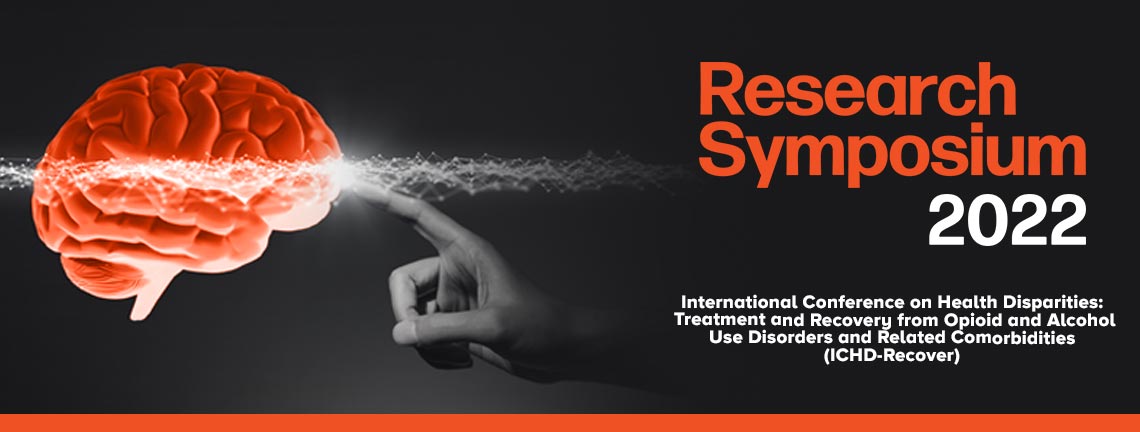
Talks
Presentation Type
Oral Presentation
Discipline Track
Community/Public Health
Abstract Type
Program Abstract
Abstract
Purpose: Substance Use Disorders (SUD) are a leading contributor to health problems and premature mortality in the United States. Stigma and misconceptions about persons with SUD contribute to negative outcomes. The misconception that older adults do not suffer from severe SUD has contributed to a paucity of treatment options that meet the unique needs this population.
Description: The Center for Older Adult Recovery (COAR) at Hanley Center in West Palm Beach, Florida provides a model for residential treatment of older 65 and older with severe SUD and related medical and mental health comorbidities. Older adults who meet DSM-V diagnostic criteria for severe SUD and American Society of Addiction Medicine (ASAM) placement criteria for residential treatment (3.1 or higher) present with medical, psychological, and sociocultural needs that differ from those of younger adults. Medically, older adults with SUD are more likely than their younger counterparts to have at least two significant medical conditions that require treatment concomitantly with SUD treatment. Psychologically, these patients are more likely to suffer from depression, anxiety and dementia. Specialized interventions to assess and care for these concerns are often missing in programs that have largely been designed to care for a younger population. Sociocultural barriers to SUD treatment in older adults are influenced by generational cohorts and age specific treatment improves engagement. Older adults who participate in treatment with their peers are more likely to participate in treatment and successfully complete. Completion rates and outcomes for COAR patients are comparable or better than younger patients completing treatment programs within the same organization. Older adults with SUD who complete treatment and report abstinence as a result are more likely to report improvement in physical health, quality of life, and quality of most important relationships compared to those who continue use alcohol and other drugs post treatment.
Looking Ahead: Specialized treatment of SUD and related conditions for older adults improves quality of life and may decrease the burden on the healthcare system. Future efforts should focus on increasing accessibility through Medicare reimbursement and improving access to treatment.
Academic/Professional Position
Community Partner
Recommended Citation
Dyben, Dale J., "Residential Treatment of Substance Use Disorder and Related Comorbidities in Older Adults" (2023). Research Symposium. 6.
https://scholarworks.utrgv.edu/somrs/2022/talks/6
Included in
Geropsychology Commons, Other Mental and Social Health Commons, Substance Abuse and Addiction Commons
Residential Treatment of Substance Use Disorder and Related Comorbidities in Older Adults
Purpose: Substance Use Disorders (SUD) are a leading contributor to health problems and premature mortality in the United States. Stigma and misconceptions about persons with SUD contribute to negative outcomes. The misconception that older adults do not suffer from severe SUD has contributed to a paucity of treatment options that meet the unique needs this population.
Description: The Center for Older Adult Recovery (COAR) at Hanley Center in West Palm Beach, Florida provides a model for residential treatment of older 65 and older with severe SUD and related medical and mental health comorbidities. Older adults who meet DSM-V diagnostic criteria for severe SUD and American Society of Addiction Medicine (ASAM) placement criteria for residential treatment (3.1 or higher) present with medical, psychological, and sociocultural needs that differ from those of younger adults. Medically, older adults with SUD are more likely than their younger counterparts to have at least two significant medical conditions that require treatment concomitantly with SUD treatment. Psychologically, these patients are more likely to suffer from depression, anxiety and dementia. Specialized interventions to assess and care for these concerns are often missing in programs that have largely been designed to care for a younger population. Sociocultural barriers to SUD treatment in older adults are influenced by generational cohorts and age specific treatment improves engagement. Older adults who participate in treatment with their peers are more likely to participate in treatment and successfully complete. Completion rates and outcomes for COAR patients are comparable or better than younger patients completing treatment programs within the same organization. Older adults with SUD who complete treatment and report abstinence as a result are more likely to report improvement in physical health, quality of life, and quality of most important relationships compared to those who continue use alcohol and other drugs post treatment.
Looking Ahead: Specialized treatment of SUD and related conditions for older adults improves quality of life and may decrease the burden on the healthcare system. Future efforts should focus on increasing accessibility through Medicare reimbursement and improving access to treatment.

